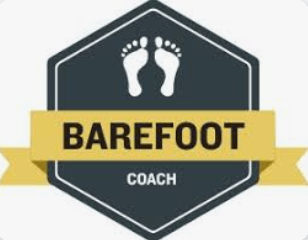In last week’s newsletter, I discussed using the Masters All American Standards as a way to gauge your performance. That got me thinking which is more relevant for me - relative performance or absolute performance? I couldn’t find out how the AAS were calculated so I did a little alternative statistical analysis.

1500m M60 Podium - Andrew Ridley Gold 4m24s
As a reference point, I looked at the World Masters Athletics Championships held a couple of weeks ago in Gothenburg, Sweden. I took the M55 results for the 5000m and the Half Marathon. I’ll be moving up to M55 next year so they are interesting data points. To create a benchmark I took an average of the podium times to remove any extreme outliers and then worked out the +10% through to +50% times.
5000m Podium mean = 16:24.1
+10% = 18:01.6
+20% = 19:39.9
+30% = 21:18.3
+40% = 22:56.6
+50% = 24:34.9
With the All American Standard being 23 mins 41s (Road) around +45% and 20 mins 30s (Track) around +25%. My assumption on the large differential between these two times is that the statistical distribution of times is closer (and faster) at track meets than at the mass participation road races.
Half Marathon Podium mean = 1:15:16
+10% = 1:22:48
+20% = 1:30:19
+30% = 1:37:51
+40% = 1:45:22
+50% = 1:52:54
With the All American Standard being 1:47:53 which would put it around +43% of that masters world champs podium.
The distribution of runners in a race means that a +40% of the winner's time could easily put you in the top 5 to 10% of racers. A good example is the Lidingöloppet, a mass participation 30 km trail race in the east of Stockholm. The Medal time for men is 2 hrs 15 mins and 2 hrs 38 mins for women. Based on last year's 2023 winners, the medal time is +36% slower than the male winner and +38% slower than the female winner, yet only 5% of male participants and 7% of female participants came in under that mark.
Let’s take a look at another well-known running benchmark, the Boston Marathon Qualifying Times. These are the men’s qualifying times by age group and the results from this year’s race:

Boston Marathon 2024
Observations:
The M40 class still has some very high caliber performers making the BQ time the highest % difference to the AG winners (40%)
From M45 through M65, if you are around 30% slower than the AG winners you are a top-performing amateur marathoner.
Boston Qualifiers in the M70 and above are the closest to their AG winners’ times of all classes.
In terms of absolute performance, +50% of the overall scratch winner time is a good high-performance benchmark for amateur athletes in endurance races.
All American Standard is lower than the qualifying standard used by the Boston Athletic Association.
If I had more time I would have liked to analyze the women's BQ and results but that will have to wait for another day. I assume they will tell a similar story.
It’s not black or white but I lean towards seeing excellence and thereby its pursuit as absolute and not relative. I am less interested in comparing myself with my age group peers or representing a country; I am much more interested in trying to move the needle closer to the true mark of performance.
The only journey is the journey within
Even if I can rouse a little hubris over the fact that I could have made the Gothenburg World Masters B final with my 5000m M50 PB I believe an over-focus on relative times is a negative influence. Age-group triathlon competitions have become rife with illegal bike drafting and allegations of banned PEDs in the amateur ranks; all because of the premium we put on age-group rankings and world championship spots.
Comparison is an act of violence against the self
Swimrun fortunately hasn’t developed that way yet. We don’t have age-groups, no doubt because the sport is so small. Even if that would result in more podiums I’m not sure it is the way to go. I prefer to acknowledge the top performances and have some notion of how far I am off them.
There is nothing noble in being superior to your fellow man; true nobility is being superior to your former self
The pursuit of improvement should be its own motivator. Each individual has their constraints; be it genetic potential, physical limitation, or life situation. We should acknowledge where we are and look to improve from that point. As long as you have done all that you can, your effort and result is just as worthy as those higher on the results list. Team Envol had the first and last finisher in the men’s team category at the ÖtillÖ Swimrun World Championships, both of which I assure you were fully celebrated.
This reminds me that I am fortunate to work with coaches and athletes celebrating individual progress. People who celebrate the community, the joy of movement, and the natural environment rather than a singular fixation on performance. Be the best YOU can be, or as my wise friend Bill L said “know your limits and keep moving”.
Until next week



